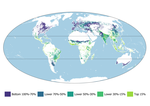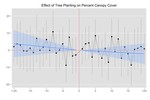Bill Schultz
Biography
I’m a quantitative social scientist specializing in policy research. Substantively, I’m interested in equity implications of policy implementation choices, especially in the environmental and health sectors. Methodologically, I’m interested in how analysts draw conclusions or make recommendations based on statistical evidence, the challenges of casual inference in program evaluation, and the ways that researchers navigate different design choices. My work employs a flexible mix of correlational analysis, quasi-experimental analysis, and experimentation. I also sometimes dabble in game theory.
I’m currently an Assistant Research Professor in the McCourt School of Public Policy at Georgetown University, working in the Better Governance Lab. I’m also an Associate Scholar affiliated with Florida State University, and I spend some of my time working for the General Service Administration’s Office of Evaluation Sciences as a Data Scientist. On this website, you will find information about some of my research, courses I’ve taught in the past, and my CV. Thank you for visiting!
Interests
- Equity in policy implementation
- Conservation and restoration
- Participatory policymaking
- Geospatial data
- Causal inference
- Statistical learning
- Evidence-based policy
Education
PhD in Political Science, 2020
Florida State University
MA in Political Science, 2017
Florida State University
BSc in Business Management, 2013
University of Maryland
BA in Government and Politics, 2013
University of Maryland

